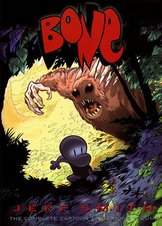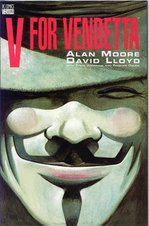In response to Sarah’s inquiry as how one would use video games in the classroom, my project focus has changed (again). In attempt to provide answers to your question, I will focus on applying three or four video games in the classroom. Due to the technological restrictions (not everyone has a video game console, although many do), I see the use of video games in the classroom as just one of many options for a culminating project or essay. I think video games can be analyzed on their own, but in these examples I will primarily apply them for comparison to literature or film within specific genres. The first game I will talk can be used in a unit on mythology.
Okami is a video game for the PS2 (PlayStation 2). The game is set in a fictional world occupied by characters representative of Japanese mythology. In the game, you are the wolf deity Amaterasu in the processes of regaining all your powers in order to stop the ancient eight-headed dragon, Orochi. Within the story, many Japanese legends, fables, and traditions are referenced. For example, the eight canine warriors that Amaterasu finds represent the eight virtues of Confucianism. The instruction manual for Okami contains a brief explanation of these references. Students can compare/contrast Amaterasu with wolves in Norse or Native American mythology.
Another form of comparison is through medium. Using a canonized text such as Homer’s Iliad, students can analyze the elements of each story in order to show that one text is more effective in telling a story than the other in terms of setting, narrative, characters, or plot. Narration is particularly interesting because of the stark contrast between literature and video game format. Typically, a video game has two forms of narrative: the preset story shown through cut scenes and the action of the player. How does this form of narrative affect the player/reader? This question leads to a discussion of the framework of the game (i.e. what makes a game enjoyable to play). Although narration is very different in these mediums, an accomplished work in both is characterized by the desire/compulsion to continue to play/read. Of course the more one plays or reads the more sophisticated one’s appreciation becomes.
By the way, since many students will be very excited about using video games for their project, class time should be set aside to show students exactly what they are responsible for. Hopefully this will discourage students who think that a project using a video game will be easier.
Citation of a video game is similar to film except that video games also have instruction booklets that are cited like literature (or the most applicable MLA format). In terms of which video games are appropriate for students: rather than assign video games that students can use, students choose the video games and I approve or disapprove their topic ideas. Some of these games may be rated M for mature, but as long as nothing vulgar is shown in class I see no problem with it. Students already read about sex and violence in the classics.
Complaints or comments?

us

Jeff Smith's "Bone"
About Me


My blog's watchdog
Blog Archive
-
▼
2006
(27)
- ► 12/17 - 12/24 (1)
- ► 12/10 - 12/17 (6)
- ► 12/03 - 12/10 (2)
- ► 11/26 - 12/03 (1)
- ► 11/19 - 11/26 (1)
- ► 11/12 - 11/19 (1)
- ► 10/29 - 11/05 (2)
- ► 10/22 - 10/29 (1)
- ► 10/15 - 10/22 (1)
- ► 10/01 - 10/08 (2)
- ► 09/24 - 10/01 (2)
- ► 09/17 - 09/24 (2)
- ► 09/10 - 09/17 (1)
- ► 09/03 - 09/10 (1)
www.flickr.com
This is a Flickr badge showing public photos from oldman.fuentes. Make your own badge here.



5 comments:
Matt,
It seems that the focus of the video game project is on the narrative structure. If this is true, then I suppose that students would not be permitted (by you) to choose video games with weak narration? Would this then limit the scope of video game use in the classroom? Or would you be able to adapt other genres of video games to the English classroom? For example, fighting games. I think that most of your discussions seem to be on RPGs, almost excluding the other video game genres. Is this because you see less merit in using other genres? I've already mentioned fighting games (i.e. Mortal Kombat style games), but what about Madden and sports games? How could you incorporate those in the classroom?
Do you think there is merit to be found in all video games?
I like your ideas so far, and I may steal some of them once I start teaching. So, keep the ideas flowing to keep me hip in the ways of the gamer.
The main reason my focus has been on RPGs and adventure (like Super Mario Bros) games is because research suggests that these two genres are most popular with both sexes and most conducive to in-school study. But the culminating project/essays I have in mind would be worked on outside of class anyway, so the video game genres you mentioned could work fine. Can sports/fighting games be used in a genre sports genre study? I guess you could compare Madden07 to Housman's "To an Athlete Dying Young". But just to clarify, under no circumstances did I intend to suggest that the fighting, sports, or FPS genres have less merit than adventure or RPG games. They are just different, and maybe the latter are not as conducive to genre study. Thanks for the comments Jack. You have expanded my mind.
Matt, you have been expanding my mind for two semesters now...you and the "inimitable" Jack.
Your work on video games in the classroom is becoming much more than a humble graduate student's output. It is beginning to take on the authority of the expert--the teacher.
I see a Will Richardson in the making here.
How is BONE? What do you think? K
Matt,
are you thinking of using video games only for narration or comparing/contrasting games with literature? What of studying sports games, for example, for what they are: their own form literacy. What do these games say about us as a society? I think that we don't have to have that connection to literature. Isn't that what celebrating all of these different literacies is about? If we only relate games to literature, it seems to me that we're only acknowledging that these games are less important than literature. Obviously, many of our students won't think this way.
Shouldn't we be catering to the most powerful cultural tool? Is literature not the most powerful? I do think comparing video games to video games is a good class assignment, and maybe they would be more appealing assignments to students. Hmm. Thank you for the comments Natalie. They are helping me to refine my project focus.
Post a Comment